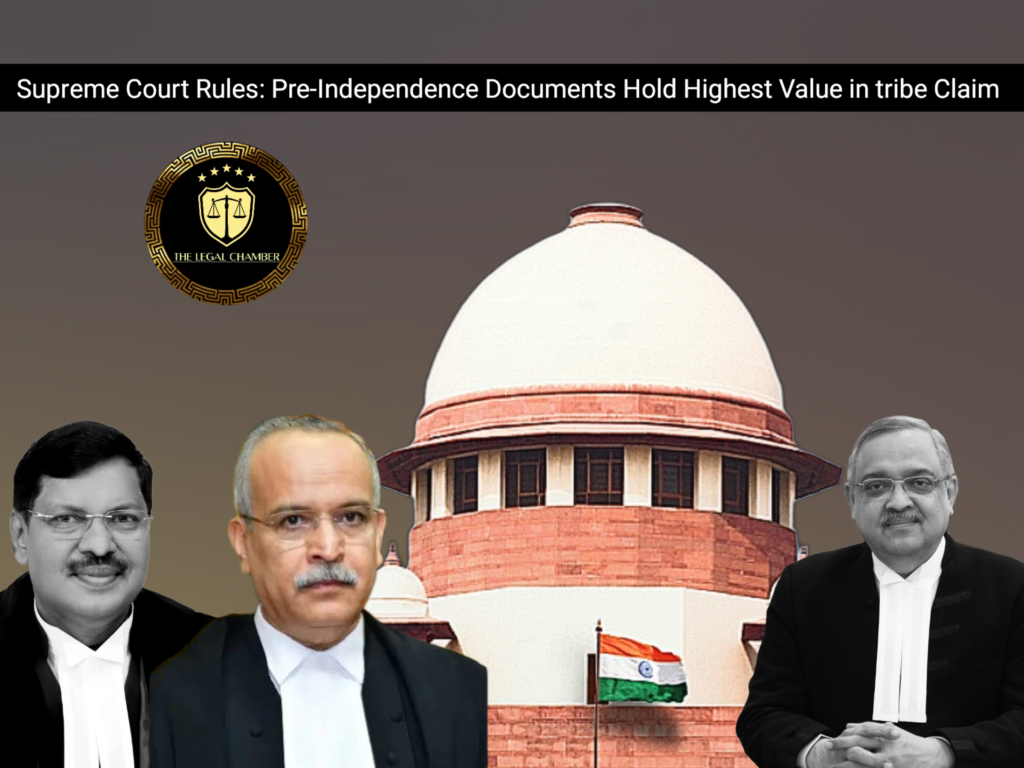
The Supreme Court held that pre-Independence documents carry greater probative value for caste claims and that the affinity test is not a litmus test. It cannot be the sole basis for rejection, especially given modernization and assimilation. The Court emphasized that such claims must be evaluated primarily on reliable documentary evidence.
Facts Of The Case:
The appellant, Yogesh Madhav Makalwad, sought admission to a medical college based on a caste certificate claiming he belonged to the Scheduled Tribe community of Koli Mahadev. His claim was supported by historical documents, including the 1943 school record of his grandfather, which explicitly mentioned the caste as Koli Mahadev. Subsequent school records from 1975 and 1979 for his father and uncle, as well as his own school records, consistently reflected the same caste. However, the Scheduled Tribe Certificate Scrutiny Committee invalidated his certificate, disbelieving the authenticity of the old documents and citing his failure to satisfactorily pass an affinity test regarding the tribe’s customs and traditions. The High Court upheld the Committee’s order, dismissing the writ petition. The appellant then appealed to the Supreme Court, challenging the rejection of his caste claim which was primarily based on the assessment of the documentary evidence and the over-reliance on the affinity test.
Procedural History:
The procedural history began with the Scheduled Tribe Certificate Scrutiny Committee, Aurangabad, invalidating the appellant’s caste claim on 24th June 2019. The appellant subsequently filed Writ Petition No. 8702 of 2019 before the Bombay High Court (Aurangabad Bench), which was dismissed by the Division Bench’s impugned judgment dated 23rd July 2024. The appellant then filed a Special Leave Petition (SLP(C) No. 27410 of 2024) in the Supreme Court. The Supreme Court granted leave, heard the civil appeal arising from the SLP, and ultimately allowed it, setting aside the orders of the High Court and the Scrutiny Committee.
READ ALSO: Complete Justice: Supreme Court Uses Special Powers to End Family Dispute, Quashes FIR After Settlement
Court Observation:
The Court observed that pre-Independence documents carry greater probative value for determining caste status and must be accorded due weight. It further held that the affinity test is not a litmus test and cannot be the sole basis for rejecting a claim, as modernization and assimilation have altered tribal communities’ traditional characteristics. The Scrutiny Committee and the High Court erred in disregarding the appellant’s 1943 documentary evidence based on mere presumption and over-reliance on the inconclusive affinity test.
Final Decision & Judgement:
The Supreme Court allowed the appeal and set aside the impugned judgment of the High Court and the order of the Scrutiny Committee. It authoritatively held that the appellant belongs to the Koli Mahadev Scheduled Tribe and directed the Scrutiny Committee to issue a Caste Validity Certificate to the appellant within six weeks from the date of the judgment.
Case Details:
Case Title: Yogesh Madhav Makalwad vs. The State of Maharashtra & Ors. Citation: (Arising out of SLP (C) No. 27410 of 2024) Appeal Number: Civil Appeal No. of 2025 Date of Judgement: August 12, 2025 Judges/Justice Name: Justice B.R. Gavai & Justice Satish Chandra Sharma & Justice K. Vinod Chandran
Download The Judgement Here